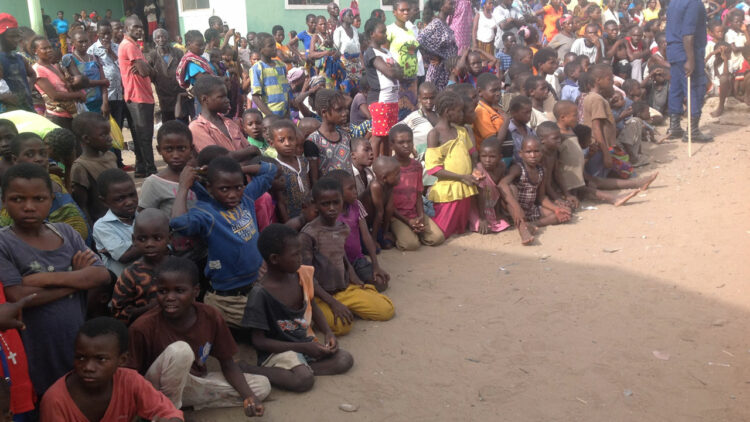The United Nations World Food Programme (WFP) has announced suspension of all emergency food and nutrition assistance for 1.3 million people in Nigeria’s North-East by the end of July.
WFP, in a statement on its website, cited critical funding shortages, escalating violence and unprecedented levels of hunger as reasons for stoppage of the intervention programme.
The development has raised the risk of severe food insecurity for more than 1.3 million people across Borno and Yobe States.
According to WFP, the suspension also followed the complete exhaustion of its food and nutrition stocks, with the last deliveries leaving warehouses in early July.
“The United Nations World Food Programme (WFP) will be forced to suspend all emergency food and nutrition aid for 1.3 million people in northeast Nigeria at the end of July.
“This is no longer just a humanitarian crisis, it’s a growing threat to regional stability, WFP’s operations in North-East Nigeria will collapse without immediate, sustained funding. Families pushed beyond their limits are left with nowhere to turn,” WFP Country Director for Nigeria, David Stevenson said.
WFP warned that the suspension of aid would have devastating effects on vulnerable groups, particularly children.
Nigeria is currently grappling with record levels of hunger, with nearly 31 million people nationwide facing acute food insecurity, according to the latest Cadre Harmonise report.
“Children will be among the worst affected if vital aid ends. More than 150 WFP-supported nutrition clinics in Borno and Yobe States will close, ending potentially life-saving treatment for more than 300,000 children under two and placing them at increased risk of wasting.
“In conflict-affected northern areas, escalating violence from extremist groups is driving mass displacement. Some 2.3 million people across the Lake Chad Basin have been forced to flee their homes, straining already limited resources and pushing communities to the brink”, the statement reads.
It added that, “When emergency assistance ends, many will migrate in search of food and shelter. Others will adopt negative coping mechanisms including potentially joining insurgent groups to survive.
“Food assistance can often prevent these outcomes. It allows us to feed families, help rebuild economies and support long-term recovery,” Stevenson said.
In the first half of 2025, WFP has been able to hold hunger at bay across northern Nigeria, reaching 1.3 million people with life-saving food and nutrition assistance.
Support for an additional 720,000 people was planned for the second half of the year before funding shortfalls put life-saving programmes in jeopardy.
Stevenson noted that WFP has the capacity and expertise to deliver and scale-up its humanitarian response, but the critical funding gap was paralysing operations.
“WFP urgently requires US$130 million to prevent an imminent pipeline break and sustain food and nutrition operations through the end of 2025”, he disclosed.











